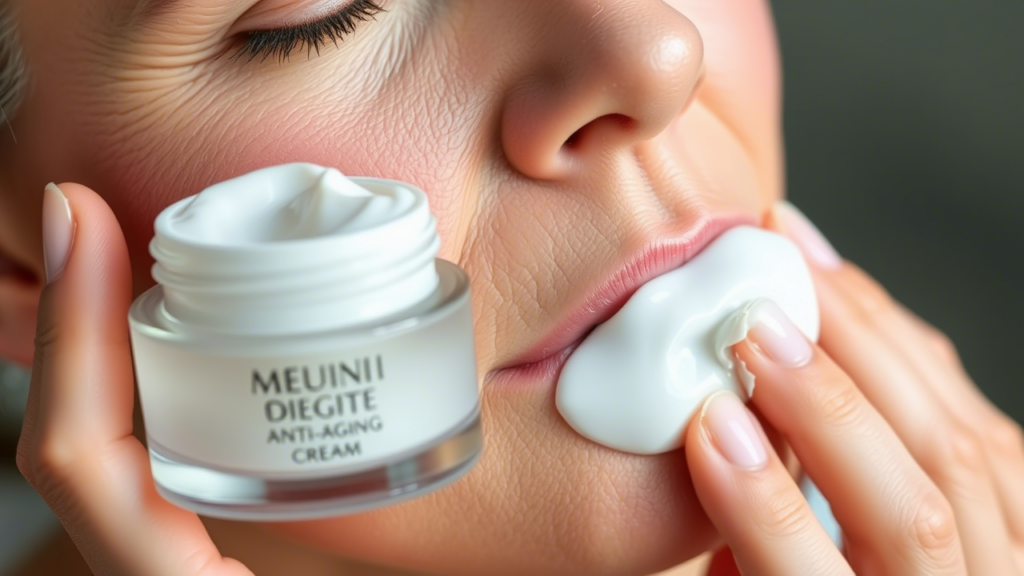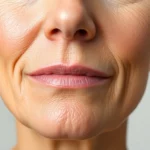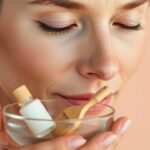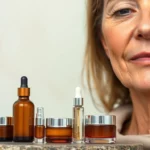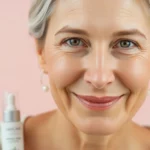Looking to turn back the clock on your skin? A skin serum might be your new best friend. These small bottles pack powerful formulas that combat aging, making them a crucial part of any anti-aging skincare routine. Skin serums are lightweight, fluid solutions that deliver high concentrations of active ingredients directly to your skin. They target wrinkles, fine lines, dark spots, and loss of firmness. Let’s dive into the best skin serums for aging skin and how they can help you!
Understanding Aging Skin and Its Needs
Aging is inevitable, but understanding why your skin ages helps you choose the right products to fight it. Let’s explore the science behind skin aging.
The Science of Skin Aging
Skin aging is a complex process. As we age, collagen and elastin production decreases, leading to sagging and wrinkles. After age 20, collagen levels drop by about 1% annually. Slower cell turnover contributes to dullness, while free radicals cause oxidative stress, damaging skin cells. These factors result in wrinkles, sagging, and age spots.
Key Ingredients in Anti-Aging Serums
Certain ingredients are game-changers for aging skin. Retinol boosts collagen production, antioxidants neutralize free radicals, and hyaluronic acid hydrates the skin. These ingredients are essential for maintaining youthful, healthy skin.
Identifying Your Skin Concerns
Everyone’s skin is unique. Dry skin needs hydration, sensitive skin requires soothing formulas, and oily skin benefits from lightweight options. Understanding your skin type and concerns ensures you choose the right serum for the best results.
Ultimate Guide to Anti-Aging Serum Ingredients
Not all serums are created equal. Knowing which ingredients are most effective is key. Let’s explore the top ingredients in anti-aging serums.
Retinol and Retinoids: The Gold Standard
Retinoids, including retinol and prescription-strength options, are essential for reducing wrinkles. They stimulate collagen, plump skin, and fade dark spots. Start with a low concentration to avoid irritation and use it at night.
Vitamin C: For Brightening and Protection
Vitamin C is a potent antioxidant that protects skin from damage, brightens complexion, and boosts collagen production. Look for stable forms like L-Ascorbic Acid and store it in a cool, dark place to maintain its effectiveness.
Hyaluronic Acid: The Hydration Hero
Hyaluronic acid attracts moisture, keeping skin plump and hydrated. It comes in different molecular weights, affecting how deeply it penetrates. It pairs well with other anti-aging ingredients like retinol and vitamin C.
Peptides: The Building Blocks of Collagen
Peptides are amino acids that promote collagen production and improve skin firmness. They also help repair damaged skin. Combine peptides with other anti-aging ingredients for optimal results.
How to Choose the Right Serum for Your Skin Type
With so many options, selecting the right serum can be overwhelming. Here’s how to choose based on your skin type and concerns.
For Dry and Dehydrated Skin
Dry skin needs hydration. Look for serums with hyaluronic acid, ceramides, and squalane. These ingredients lock in moisture and improve elasticity. Layer them under a rich moisturizer for best results.
For Oily and Acne-Prone Skin
Oily skin benefits from lightweight serums with salicylic acid, niacinamide, and tea tree oil. Avoid comedogenic ingredients that clog pores. These serums help control oil and prevent breakouts.
For Sensitive Skin
Sensitive skin requires gentle care. Choose soothing ingredients like chamomile, aloe vera, and centella asiatica. Always patch test new products and introduce them slowly to avoid irritation.
For Mature Skin
Mature skin needs powerful ingredients like retinol, peptides, and antioxidants. Introduce these serums gradually and be patient—results take time and consistency.
How to Use Anti-Aging Serums in Your Skincare Routine
Using serums correctly maximizes their benefits. Here’s a step-by-step guide to incorporating them into your routine.
Layering Serums: The Correct Order
Apply serums from thinnest to thickest to ensure proper absorption. Allow a few minutes between layers to prevent pilling and enhance effectiveness.
Maximizing Serum Absorption
Apply serums to clean, slightly damp skin to boost absorption. Gently massage the product into your skin to improve circulation and penetration.
Pairing Serums with Other Skincare Products
Some ingredients work well together, while others don’t. For example, avoid combining retinol with AHAs to prevent irritation. Always use sunscreen to protect against UV damage.
Real-World Results and Expert Insights
Do anti-aging serums really work? Let’s explore real-world examples and expert opinions.
Before-and-After Transformations
Imagine someone using a vitamin C serum—their skin gradually brightens and evens out. Or picture someone using retinol—fine lines soften, and their skin appears smoother. These transformations boost confidence and showcase the power of serums.
Dermatologist and Esthetician Insights
Dermatologists and estheticians often recommend anti-aging serums for their ability to target specific concerns. Their expertise can help you choose the right products for your skin.
Common Concerns and Myths Addressed
Serums aren’t just for mature skin, and not all serums are the same. Side effects are manageable by starting slowly and using gentle formulas. Don’t let myths prevent you from reaping the benefits of serums.
Conclusion
Anti-aging serums are powerful tools for combating wrinkles, fine lines, and other signs of aging. The key is choosing the right serum for your skin type and concerns. Start incorporating serums into your skincare routine today and enjoy healthier, younger-looking skin. Begin your journey now and experience the transformation!
